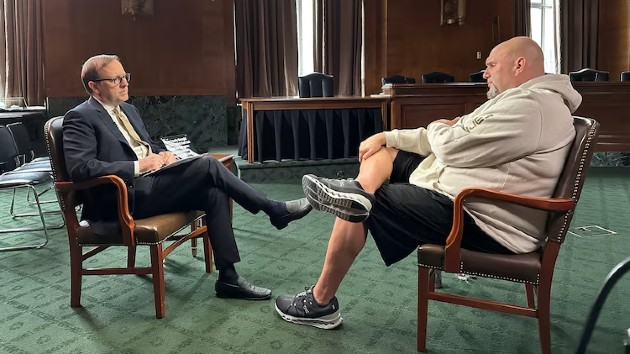House Republicans fail to override Biden’s 1st presidential veto
Written by ABC AUDIO on March 24, 2023

(WASHINGTON) — The Republican-led House failed on Thursday to override President Joe Biden’s veto of a resolution that would have prevented retirement fund managers from accounting for certain social factors when making investment decisions.
The vote was 219-200 in favor of overcoming the veto, but a two-thirds majority vote is needed.
The House initially passed H.J. Res. 30 on Feb. 28 with the support of all Republicans and one Democrat, Rep. Jared Golden of Maine. It took on the issue of environmental, social and governance (ESG), specifically whether retirement fund managers covered under federal law may include that strategy in their calculus.
ESG — labeled by critics as “woke capitalism” — has become a major target by conservatives who say it is unfair to certain companies, including in the oil and gas industry, and can be bad for investors. Supporters of the policy say it guides them to invest in issues they believe help society and reflects changing trends.
Following Biden’s veto on Monday, the first of his presidency, House Republicans took up the issue again. House Majority Leader Steve Scalise, R-La., said his conference would continue to fight against ESG.
“House Republicans will keep fighting to overturn this rule allowing ESG investing and to make sure Americans are getting the best retirement they can, not the most woke,” the leader wrote in his weekly floor lookout.
But the vote to override Biden’s veto — the House GOP’s first attempt to do so in the new Congress — was always unlikely to succeed. The measure needed two-thirds of the lower chamber’s support to advance to the Senate, where it would also need a two-thirds majority vote.
While there is a slim Republican majority in the House, the GOP is in the minority in the Senate.
Legislative action on the ESG issue came after a Labor Department rule under Biden took effect at the beginning of February allowing retirement fund managers to consider ESG factors. But it is an issue Republicans in Congress oppose because they say it is wrong to consider non-financial variables, like climate change.
House Republicans quickly introduced a resolution to block the Biden administration’s rule, which gained sufficient support in both chambers of Congress. After H.J. Res. 30 passed the House, it passed the Senate on March 1 with the bipartisan support of Democratic Sens. Joe Manchin of West Virginia and Jon Tester of Montana.
Biden vetoed the measure on Monday, saying then that the Department of Labor’s rule “protects the hard-earned life savings and pensions of tens of millions of workers and retirees across the country.”
ABC News’ Lauren Peller contributed to this report.
Copyright © 2023, ABC Audio. All rights reserved.





